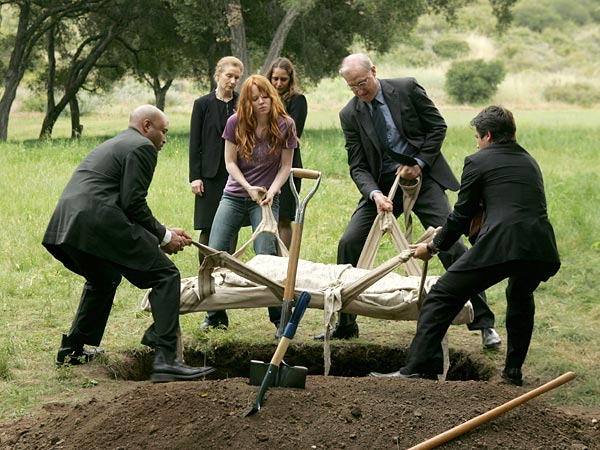A recent blog post by a friend about what is coming to be commonly known as the "healthcare crisis" inspired me to add another chapter to the saga.
Roughly 15 years ago, my older brother (who was 18 at the time) was in a terribly debilitating car accident, was in a coma for 9 weeks, and upon awaking, spent months and months in physical therapy. He had to learn how to do everything again: eat, walk, talk, even sit up straight. After 3 months in rehab at Baylor in Dallas, his total hospital bill topped out at well over $100,000. And that didn't count the weekly rehab he still had to get once he moved back home to Arkansas. Luckily, he was covered on my mother's state insurance (she's a public school teacher) and very little of that actually came out of my parents' pocket. But imagine if one or both of my parents hadn't had good insurance, or my brother hadn't been covered? That would have been the end of my parents. There's no way they could pay that bill without losing everything.
Eventually he's able to work again, but only part-time, and he collects Social Security. Due to only working part-time and being disabled, his only real insurance is Medicare. He could, especially now, work far more than he is, but due to receiving Social Security, he can't make more than a certain amount of money each month, which is basically poverty level. Otherwise he loses his Social Security. And if he loses his Social Security, he loses his Medicare, his only form of insurance.
Somewhere along the way, he contracts HIV. (We won't even go into how his brain injury impairs judgment and inhibits control of impulsive behavior; that's another post, or a book). For years he's fine, but at the beginning of 2005 (or 2006, I'm not sure), he sees a spike in viral loads, and his T-Cells drop. Which means it's time for the dreaded "cocktail." Luckily, the cocktail works, with little to no side effects, which is rare, but all the drugs combined cost over $3,000 a month, which, with a small co-pay, is covered by Medicare.
Well, about 6 months after he starts on the cocktail, he receives a letter from Social Security informing him that he's been being overpaid because he makes too much money, and he now owes them $30,000 in back payments. End of payments to the brother; now
he owes
them.
2 weeks later he receives another letter informing him that he will still get his payments, but they're going to subtract $50 every month to begin reimbursing their $30,000. (Uh, how long you think that'll take? Anybody care to do the math?) Then 2 weeks after that he receives another letter saying he's still going to receive payments but they're going to take
$100 out every month to begin reimbursing their $30,000.
Also, because of this, he gets kicked off Medicare. Bye-bye cocktail medicine insurance. Now, in order to pay for those drugs that cost $3,000 a month, it has to come out of somebody's pocket.
Needless to say, my parents are scrambling furiously to try to figure out how this happened, what to do, and how to get him reinstated on Social Security. Clearly, no one seems to be in charge, and their policies for dealing with my brother are changing month to month. Finally my parents start working with a counselor, who tells them to save all of my brother's pay stubs, public transportation receipts (he can't drive due to his injury) and all paperwork pertaining to the HIV meds. She says to send them to her every 6 weeks. So they do. And this works for awhile. She gets him all reinstated, and everything's back to semi-normal.
One day, my father gets a huge package in the mail from Social Security and opens it. It's a package of all the stuff he's been sending this counselor for the past 12 weeks or so, with a note attached from someone else saying, "So and so doesn't work here anymore. What is all this stuff and what am I supposed to do with it?"
And everything started all over again. (For the record, my brother gets his drugs covered again, with co-pays, and after a $4,000 annual premium due up front at the beginning of each year.) But my family has been fighting this for years, and it's still not resolved, and now lawyers are involved (I think it ended up that he's back on SS, but still owes the $30,000, even though all the previous rules were followed). Who knows how long this could continue to drag on, with no small amount of financial and emotional drain.
The biggest problem in all of this to me seems to be a serious lack of oversight. If Social Security and Medicare are both federal agencies, and no one is there to manage them or hold anyone accountable for anything, then how is universal coverage going to work? I have my doubts about universal coverage, despite how badly I want it, and think the citizens of this country deserve it. I also have my suspicions that under a different administration, and were we not in the middle of a ridiculous war that's draining every federal resource there is, this kind of stuff might be handled in a more pragmatic and efficient way.
But also, if the United States had a more formalized version of universal care (and maybe an addendum to this could be a caveat for parents to cover their adult children if the adult children are disabled), then the Social Security wouldn't be so important to my brother, and he could A) work more, and B) probably ultimately be less of a drain on federal dollars (depending on how his federally subsidized insurance coverage would work, and how prescriptions fall into that).









